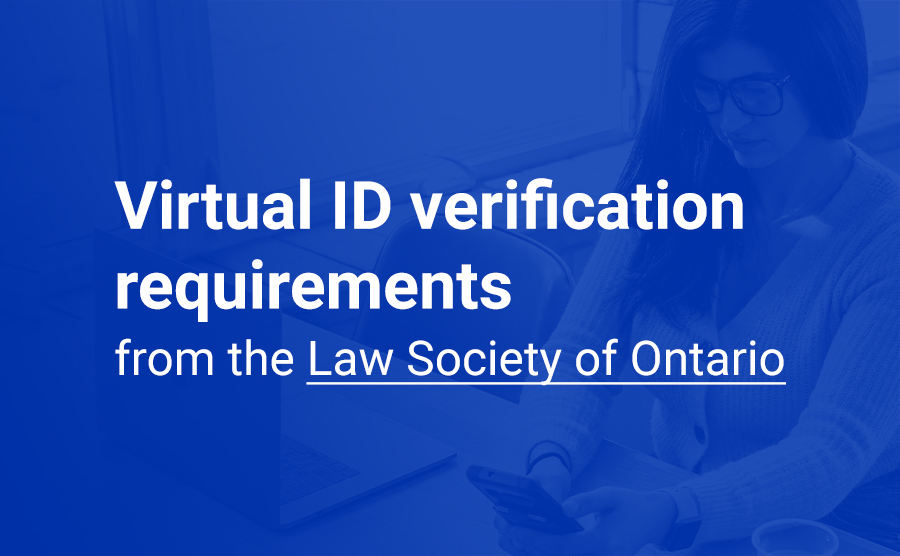
Starting January 1, 2024, lawyers and paralegals will be required by the Law Society of Ontario to verify the identity of clients using one of the following methods:
- Virtual identity verification with authentication
- Credit file method
- Dual process method
1. Virtual identity verification with authentication
According to the Law Society, “licensees may assess the authenticity of the government-issued photo identification document by:
- Asking the individual to scan their government-issued photo identification document using the camera on their mobile phone or electronic device, and
- Using technology to compare the features of the government-issued photo identification document against
- known characteristics (e.g., size, texture, character spacing, raised lettering, format, design)
- security features (e.g., holograms, barcodes, magnetic strips, watermarks, embedded electronic chips), or
- markers (e.g., logos, symbols).”
Licensees can use the eID-Me identity verification service to automatically perform this entire process.
Learn more about eID-Me identity verification.
2. Credit file method
Licensees can use this method by matching the name, address, and date of birth provided by a client with the information in that client’s Canadian credit file, which must have existed for at least three years.
Learn more about the credit file method [PDF].
3. Dual process method
Licensees can use this method by reviewing “any two of the following pieces of information:
- Information from a reliable source that contains the individual’s name and address;
- Information from a reliable source that contains the individual’s name and date of birth; and/or
- Information containing the individual’s name that confirms that they have a deposit account or credit card or other loan amount with a financial institution” (Law Society of Ontario).
Learn more about the dual process method [PDF].
Additional information
Licensees may use an agent on their behalf to verify the identity of a client under certain conditions.